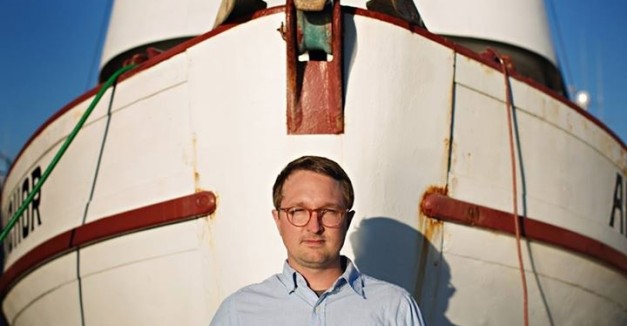Chris Staples with Lemolo
Tickets $10
http://www.etix.com/ticket/p/6718799
There are no casual Chris Staples fans. The man inspires devotion. The turnaround from casual listener to evangelist is nearly instantaneous. Play his music during a road trip with friends and inevitably someone will ask, “Who is this?” And a lifelong fan is born. Such is the unaffected power of these songs, of this voice. Chris Staples fandom is rewarding and lasting (despite his understated approach to promoting his own work, which – as it should be with all artists – seems secondary to the effort he puts into the making of it). We follow where he leads, and our numbers are growing.
A phenomenally dexterous guitarist, Staples has spent much of his career so far as a backing musician for other artists. Over the years he’s played with J. Tillman, later known as Father John Misty, and toured the world as a member of Telekinesis. Never content for long, Staples also travels on his own, never settling, never staid. A seasoned carpenter, he sustains his journeyman lifestyle by working construction jobs wherever he finds himself living. In the spring of 2014, having recently decamped to the Northwest, Chris Staples happened to do some work on the home of Josh Rosenfeld, co-founder and head of Seattle’s renowned Barsuk Records.
One night, Rosenfeld sat down to dinner with Matthew Caws and Michael Benjamin Lerner, members of Nada Surf and Telekinesis respectively. Rosenfeld recalls, “I knew Chris from his days in Telekinesis and told Michael that he was installing a screen door at my house. He and Matthew both told me that I had to hear Chris’s new record, which, thankfully, I did.” The two songwriters raved about the album, and insisted that Barsuk had to release it. Rosenfeld – and the entire staff of the label – agreed heartily, and American Soft became Staples’ debut Barsuk release. Continues Rosenfeld, “The hooks are great – subtle and elegant – and his voice has a soft raspy ease to it that I could listen to all day.”
American Soft is a bicoastal record, written partly in Washington State, the hardworking timberland home to grizzled locals and Midwestern expatriates, and also in Florida, the wild and weird American outland known as much for strange crime and cutting-edge nightclubs as for family theme parks and extravagant retirement communities. Staples wrote portions of American Soft while squatting in his abandoned childhood home, a Pensacola bungalow empty save for an old piano. “I slept on a Coleman cot for two months. The yard was overgrown up to my waist,” Staples remembers. “The neighbor lady across the street used to babysit me. I ran into her one day and she didn’t even recognize me. I hadn’t seen her in 15 years.”
American Soft’s musical ideas are at once diverse and cohesive, the lyrics both direct and lushly impressionistic. The sunny “Black Tornado,” built around a spritely ukulele strummed to a looped handclap-and-kickdrum beat, stands as the record’s poppiest track even as the foreboding cyclone shows up in the chorus. Upon first listen, the soft and sublime “Dark Side of the Moon” plays as a simple and strong declaration of a desire to love. On that level it works beautifully and completely satisfies. However, the title suggests something more, some deeper connection to the classic album with which it’s shared. Indeed, Staples’ gorgeous “Dark Side of the Moon” is more than the sweet, gentle love song it seems on first listen; it is a dream of a dream of a dream.
“The Pink Floyd album of the same name is pretty vague in its meaning,” Staples explains. “It’s the second-best selling album of all time. There are message boards dedicated to interpretations of Dark Side of the Moon. I’ve read hundreds of interpretations of what this album means exactly. My song is based on someone’s idea of what that album is about. It’s really a song about people who obsess about hidden messages or meanings. Maybe the album meant nothing and that’s why it resonated with so many people. It was vague enough for people to construct these visions within the album Pink Floyd made.”
Staples’ songs are, in the tradition of the best songwriters, fantastically economical. No moment is wasted, no idea indulged beyond necessity. Instrumental breaks occur but don’t linger, serving their purpose and slipping quickly back into verses. American Soft features only a single traditional bridge, on the straight-ahead almost-rocker “Needle Park,” which finishes with a short dual-guitar explosion, an explosion which ends suddenly, as suddenly as it began, a fleeting moment leaves us wanting more, always more, in the best way. Chris Staples has devoted the whole of his life to fostering that illusive magic, to passing it on, to giving and giving ‘til it’s all gone. Fortunately for us, he’s only just begun.




